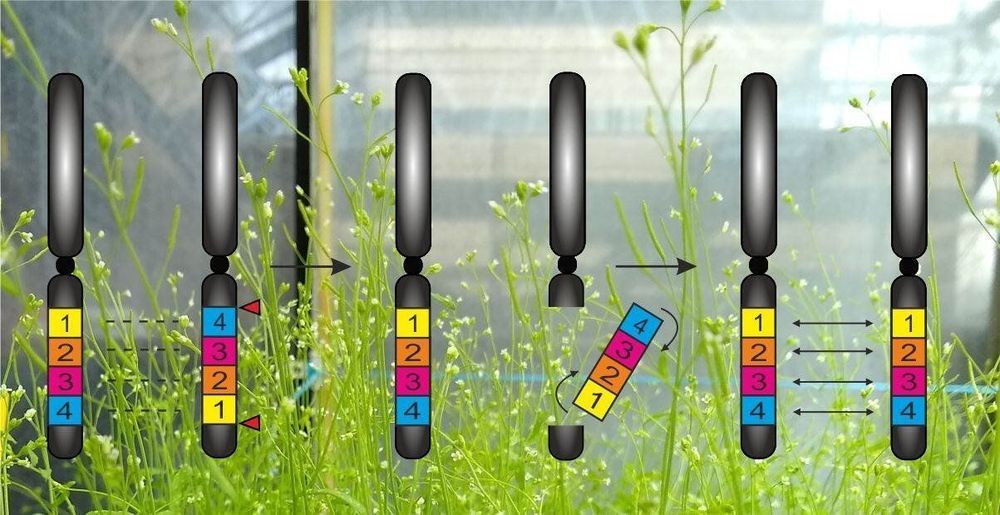A new application of the CRISPR/Cas molecular scissors promises major progress in crop cultivation. At Karlsruhe Institute of Technology (KIT), researchers from the team of molecular biologist Holger Puchta have succeeded in modifying the sequence of genes on a chromosome using CRISPR/Cas. For the first time worldwide, they took a known chromosome modification in the thale cress model plant and demonstrated how inversions of the gene sequence can be undone and inheritance can thus be controlled specifically. The results are published in Nature Communications.
About 5,000 years ago, genetic information of thale cress was modified. To date, it has spread widely and is of major interest to science. On the chromosome 4 of the plant, a so-called inversion occurred: The chromosome broke at two points and was reassembled again. The broken out section was reinserted, but rotated by 180°. As a result, the sequence of genes on this chromosome section was inverted. This chromosome mutation known as “Knob hk4S” in research is an example of the fact that evolution cannot only modify the genetic material of organisms, but determine it for a long term. “In inverted sections, genes cannot be exchanged between homologous chromosomes during inheritance,” molecular biologist Holger Puchta, KIT, explains.
